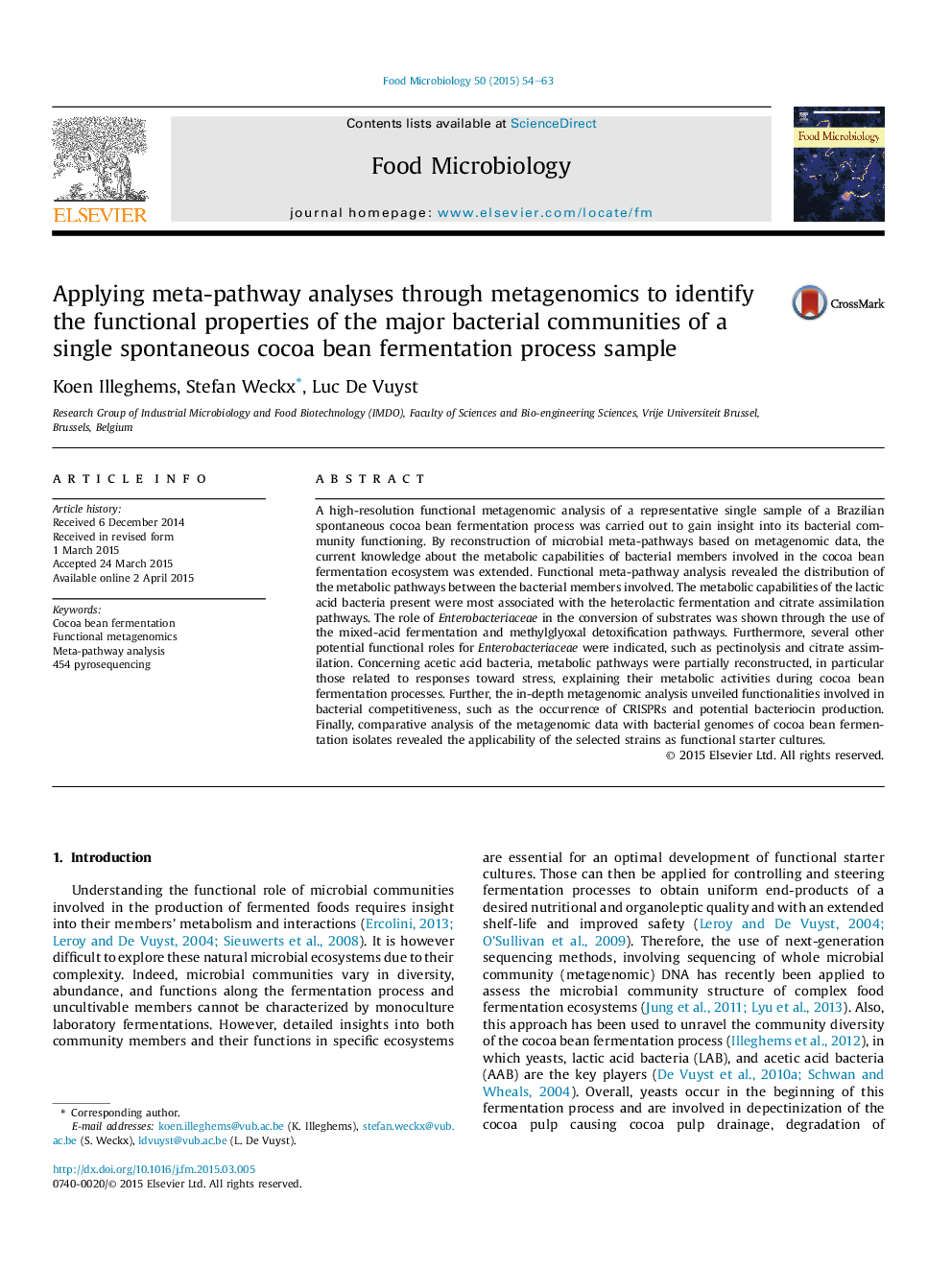| Article ID | Journal | Published Year | Pages | File Type |
|---|---|---|---|---|
| 4362711 | Food Microbiology | 2015 | 10 Pages |
•First report on functional metagenomics of the cocoa bean fermentation process.•New insights into the distribution of metabolic capacities of LAB and AAB.•Metagenomics reveals the functional roles of Enterobacteriaceae.•New insights into citrate consumption during the cocoa bean fermentation process.•New insights into pectin degradation during the cocoa bean fermentation process.
A high-resolution functional metagenomic analysis of a representative single sample of a Brazilian spontaneous cocoa bean fermentation process was carried out to gain insight into its bacterial community functioning. By reconstruction of microbial meta-pathways based on metagenomic data, the current knowledge about the metabolic capabilities of bacterial members involved in the cocoa bean fermentation ecosystem was extended. Functional meta-pathway analysis revealed the distribution of the metabolic pathways between the bacterial members involved. The metabolic capabilities of the lactic acid bacteria present were most associated with the heterolactic fermentation and citrate assimilation pathways. The role of Enterobacteriaceae in the conversion of substrates was shown through the use of the mixed-acid fermentation and methylglyoxal detoxification pathways. Furthermore, several other potential functional roles for Enterobacteriaceae were indicated, such as pectinolysis and citrate assimilation. Concerning acetic acid bacteria, metabolic pathways were partially reconstructed, in particular those related to responses toward stress, explaining their metabolic activities during cocoa bean fermentation processes. Further, the in-depth metagenomic analysis unveiled functionalities involved in bacterial competitiveness, such as the occurrence of CRISPRs and potential bacteriocin production. Finally, comparative analysis of the metagenomic data with bacterial genomes of cocoa bean fermentation isolates revealed the applicability of the selected strains as functional starter cultures.
